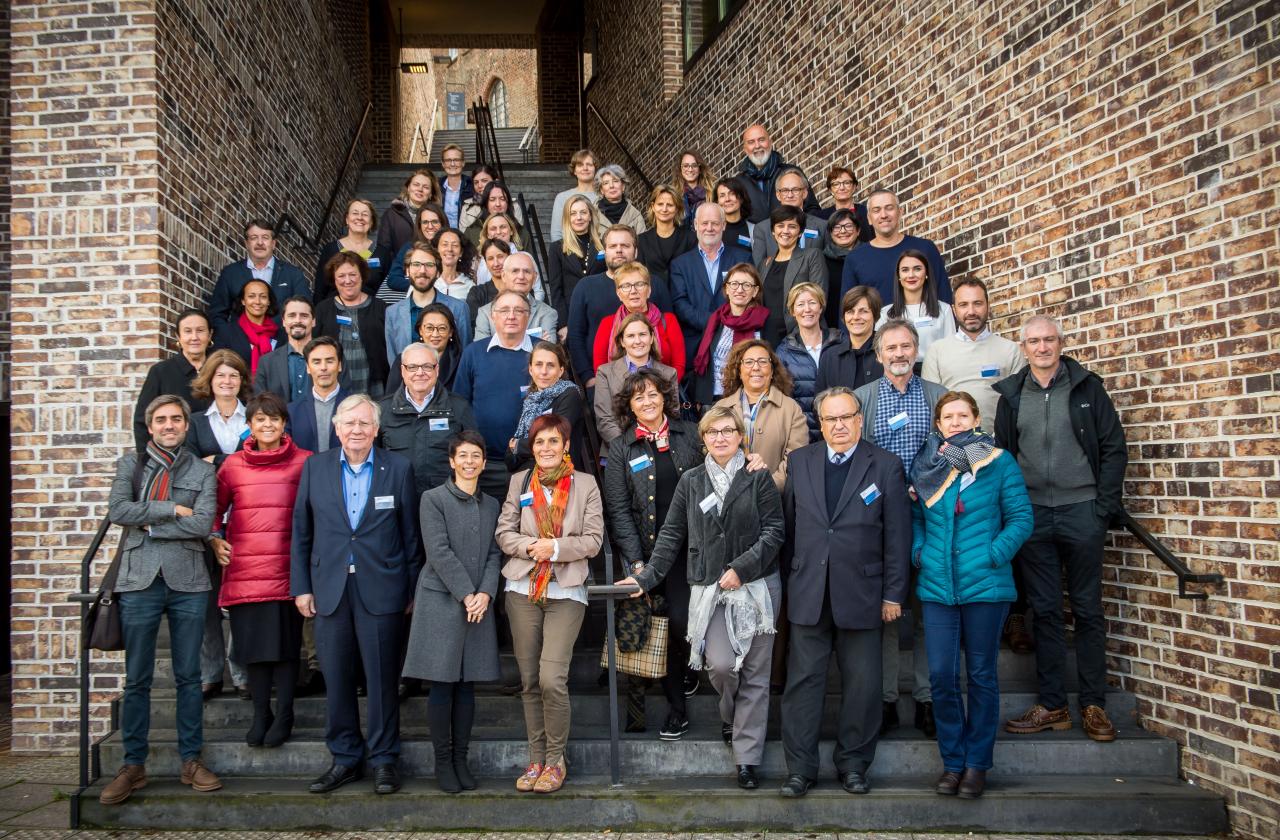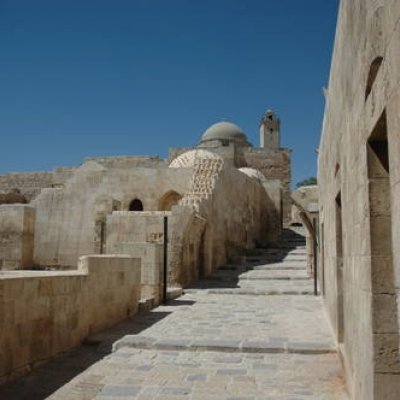Our Contribution
European Cooperation

Heritage is crucial for the European idea. Through cultural heritage, especially, people discover their shared history and learn from the past. In order to understand World Heritage sites not only as national entities, isolated from each other, but as vital parts of a larger picture which transcends national boundaries, the focus on links between cultures is becoming increasingly important.
European heritage has the potential to demonstrate the interdependence of heritage, dialogue and solidarity at European level. It is an important driver of peace-building, diversity and multilateralism in times when nationalist agendas are on the rise.
Establishing and consolidating European Networks
The development of (supra-)regional civil-society-based institutions plays a key role in strengthening cooperation between European World Heritage stakeholders. In 2007, a first expert meeting on UNESCO World Heritage sites in Europe took place, resulting in a joint declaration calling for a network for cultural dialogue and cultural tourism, to share information, ideas and best practice at a European level: the Lübeck Declaration.
Today, there are about 16 national and transnational World Heritage associations in Europe. Since 2015, their annual meetings of the European World Heritage Association have become an important, vital platform for exchange between a variety of European stakeholders coming from the field of World Heritage, tourism, heritage and nature conservation. The network of European World Heritage Associations seeks to foster closer cooperation between World Heritage sites on a variety of topics such as sustainable tourism, communication and interpretation and cross-border protection and management issues.
In 2017, the German Commission for UNESCO and the German World Heritage sites association organised the third Meeting of European World Heritage Associations in the Hanseatic City of Lübeck, where the participants adopted the Declaration of Lübeck (2017). This encourages the World Heritage stakeholders across Europe to form civil-society-based associations of World Heritage sites and stakeholders to help implement the World Heritage Convention, and expresses a wish to further consolidate the emerging network through coordinated communication and systematic networking with culture and nature stakeholders.
In view of the emerging Network of World Heritage Associations in Europe, a first technical meeting took place in Berlin during the European Cultural Heritage Summit in June 2018 and a definition, a vision and a mission were drafted. The network of associations reflects the diversity of its members and their activities and aspires to raise awareness of the significance and benefits of World Heritage at a European level. It aims to contribute to economic, social and environmental sustainability in the European World Heritage context, with a special emphasis on the involvement of local communities, and to provide information, education and support for World Heritage at a European level.

European Year of Cultural Heritage (Sharing Heritage)
Encouraging people from across the world to discover and engage with European cultural heritage in order to strengthen the original European idea of a single, peaceful society is the main goal of the European Year of Cultural Heritage 2018 – launched by the European Commission. Based on the theme of “Sharing Heritage”, it offers a rich programme all over the European Union focusing on the links between European cultural heritage, and is designed to raise awareness about the importance of protecting that heritage. The German Commission for UNESCO participated in the European Year of Cultural Heritage 2018 (detailed information in German) by running a number of events across the year.
World Heritage as Places for Building Capacities and Lifelong Learning in Europe
As a contribution to the European Cultural Heritage Year, the German Commission for UNESCO, together with the Saxon State Ministry of the Interior and other heritage stakeholders, organized the conference on “World Heritage as Places for Capacity Building and Lifelong Learning in Europe”, which was held on 9 November 2018 at the denkmal Trade Fair in Leipzig.
The conference addressed the potential of World Heritage sites as places of education, training and apprenticeship by highlighting examples from Strasbourg, Finland and the Upper Middle Rhine Valley in Germany. The analysis and discussion of strategies for integrating World Heritage-related contents into school curricula and general educational processes of lifelong learning were central points of the conference.
World Heritage Journeys in Europe
Education and communication are essential to pass on knowledge about cultural heritage, as well as democratic values. To encourage comprehensive European perspectives on heritage, it is necessary to develop new visitor experiences which highlight the links between heritage sites in Europe. To this end, thematic routes have been established which offer new perspectives on World Heritage sites. Along four different routes, travellers can engage with places and sites which play a significant role in European history or offer a special glimpse of European culture. Currently, 34 World Heritage sites are part of larger European heritage routes spanning 19 European countries. The selected sites are outstanding examples of how heritage is interconnected, and how it can transcend national boundaries. The Zollverein Coal Mine Industrial Complex in Germany, for instance – one of Europe's largest coal-mining facilities – demonstrates the development of heavy industry on the continent. It is part of the “Underground Europe” route, a journey which takes visitors into the hidden life and culture beneath the surface of Europe.
The various routes can be explored on the website of the World Heritage Journey.



